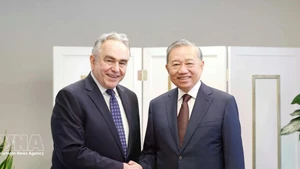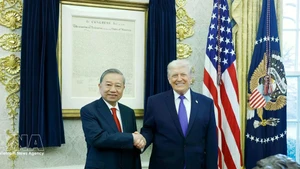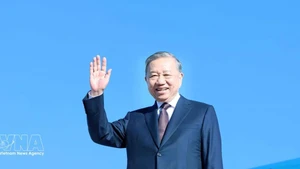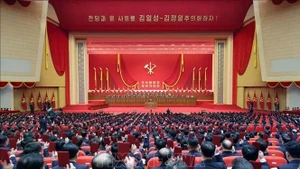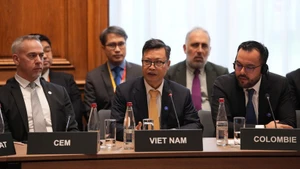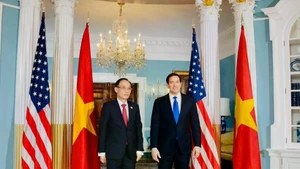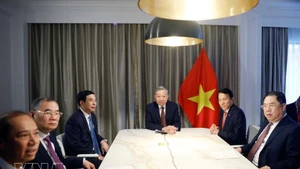The meeting was part of Chinh's trip to China for the World Economic Forum (WEF)'s 15th Annual Meeting of the New Champions and bilateral working sessions.
He thanked Zhang for attending a conference held earlier the same day on the Vietnam - China cooperation in developing strategic transport infrastructure and the role of the two countries' businesses, which reflects the two governments' great attention to cooperation in this field.
Chinh said among many affairs to be done to realise the two countries' high-level common perceptions and joint statement, transport is a breakthrough, feasible, and symbolic field critical to the strategic connectivity between their economies, as well as between the "Two Corridors, One Belt" framework of Vietnam and the "Belt and Road" initiative of China.
He suggested the two sides focus on promoting cooperation in implementing three railway lines linking Vietnam with China, namely Lao Cai - Hanoi - Hai Phong, Lang Son - Hanoi, and Mong Cai - Ha Long - Hai Phong.
At the meeting, both sides agreed on the significance of these three railway lines, which will help connect Vietnam with Central Asia and Europe through China, and connect China with the Association of Southeast Asian Nations (ASEAN) via Vietnam.
The Vietnamese Government leader said that the lines will help both countries reduce logistics and production costs, improve the competitiveness of goods, facilitate production and business activities, create jobs and livelihoods for people, and boost socio-economic development.
Concurring with Zhang's view on promoting businesses' role in implementating the projects, Chinh held that it is important for both sides to have strong determination, make great efforts, and act decisively and effectively.
He also asked the Chinese side to assist Vietnam's railway sector through technology research and transfer, preferential loans, and manpower training.
For his part, Zhang agreed with Chinh's opinions and vision about economic and transport connectivity between Vietnam and China, of which railway is a priority, with the early implementation of the three abovementioned railway projects.
Chinese businesses, especially state-owned enterprises, will actively engage in the two countries' projects on strategic transport connectivity, he noted.
The Chinese Vice Premier proposed ministries, localities, and agencies of both sides, especially the two agencies managing state capital at enterprises, continue coordinating closely to carry out projects in line with the orientations and directions of the two countries’ leaders.
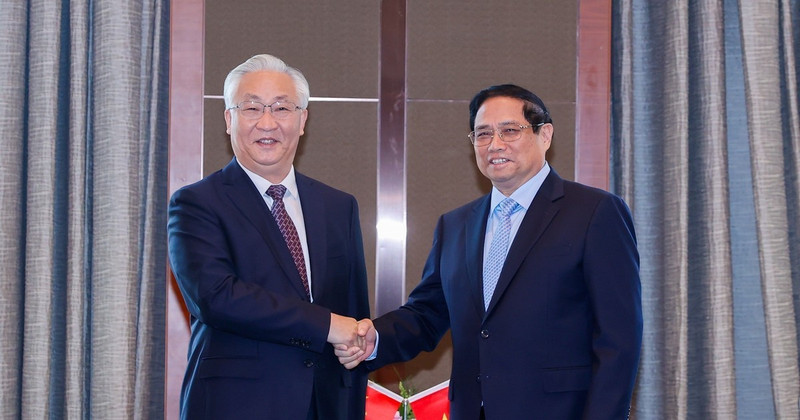
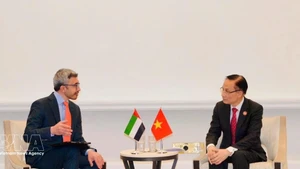
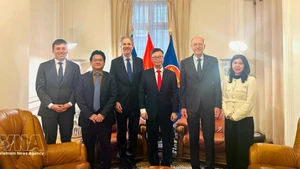
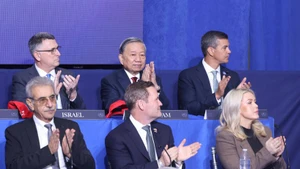
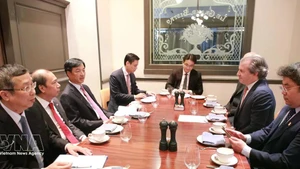
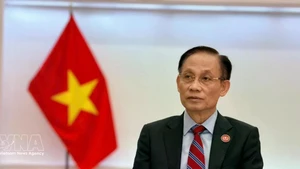
![[In pictures] Party General Secretary To Lam meets US President Donald Trump](https://en-cdn.nhandan.vn/images/dcd63867a0eed4c7753eb4bfb346593abc1ce710dfab8ad1b9aebd75ea6bf930b2ea13e4664779d689ba40aadd80f76d5d05d1208720fd7b0d811ace3a3297321c78cf738400e136e3f2d8790b24d43646e46edbe19517144a88f6ffb0d528f153574a7109328cc0949e4a4c16433c2ff751541639eefe4490518227264cbf8e/vna-potal-tong-bi-thu-to-lam-gap-tong-thong-hoa-ky-donald-trump-8599945.jpg.webp)
